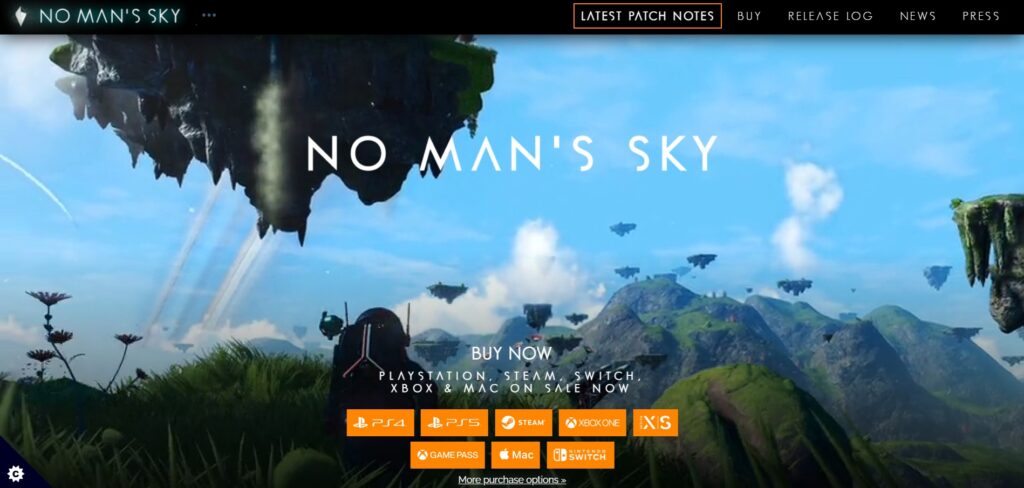AI Gaming
AI Gaming: The Future of Interactive Entertainment
Artificial Intelligence (AI) is playing an increasingly pivotal role in the gaming industry, reshaping how games are designed, developed, and experienced.
As a passionate gamer and developer, you may have witnessed firsthand how AI enhances gameplay, creating more immersive and interactive experiences for players. From intelligent non-playable characters (NPCs) that adapt their strategies based on player behavior to procedural content generation that produces vast, unique game worlds, AI is pushing the boundaries of what is possible in gaming.
In this post, I’ll explore the various ways AI is integrated into gaming, highlighting its impact on game mechanics, character development, and user engagement.
We’ll delve into the latest advancements in AI technology that are not only streamlining game development but also enriching the overall gaming experience. Whether you’re a developer looking to incorporate AI into your projects or simply curious about its influence on the gaming landscape, this exploration of AI in gaming will provide valuable insights into its transformative potential.
The Transformative Role of AI in Game Mechanics, Character Development, and Player Engagement:
AI has transformed gaming in recent years, making games smarter, more immersive, and increasingly engaging for players. Here are some key ways AI is integrated into gaming, along with the latest advancements:
1. Game Mechanics and Real-Time Adaptation
- Procedural Content Generation (PCG): AI algorithms dynamically create game environments, quests, and challenges tailored to player skill levels, creating a personalized experience for each player. This is widely seen in games like Minecraft and No Man’s Sky, where worlds are generated uniquely each time a game starts.
- Adaptive Difficulty: AI can monitor a player’s actions and adjust the game’s difficulty level in real-time, ensuring a smooth yet challenging experience. For example, AI can adjust the intelligence and aggressiveness of enemy AI based on how well the player is performing, which creates a balanced and satisfying gameplay experience.
- Predictive Analytics: By analyzing player behavior, AI can predict future moves or actions, making gameplay more interactive. For instance, AI-driven NPCs can predict if a player is likely to engage in a fight or explore, adjusting their responses accordingly.
2. Character Development and Behavior Modeling
- Non-Player Characters (NPCs): AI has made NPCs more lifelike and responsive. Advanced AI models enable NPCs to have complex decision-making abilities and realistic emotional responses. For instance, AI-powered NPCs in Red Dead Redemption 2 exhibit natural behaviors, from fighting and retreating to interacting with other characters.
- Emotion AI and Personality Traits: AI enables characters to have distinctive personality traits and emotional ranges, which makes interactions with them feel more authentic. Emotion AI lets characters display appropriate reactions (e.g., fear, excitement) based on in-game events, enriching storylines and gameplay immersion.
- Deep Learning and Behavioral AI: Reinforcement learning models allow AI characters to learn from players over time, adapting their behavior to make gameplay challenging or more rewarding. For example, AI opponents can “learn” a player’s strategies in fighting games, compelling players to adapt and explore new tactics continually.
3. Enhanced User Engagement and Personalized Experiences
- Natural Language Processing (NLP): NLP-powered AI allows players to engage in more meaningful conversations with NPCs. Games like Cyberpunk 2077 use NLP for more fluid interactions, where NPCs respond to different dialogues dynamically, affecting storylines and choices.
- Sentiment Analysis and Engagement Measurement: AI can gauge a player’s emotions through inputs, such as in-game choices or physiological sensors (when available), allowing the game to adjust its narrative elements in real-time. This helps create emotional engagement by adapting the storyline, game difficulty, or soundtrack based on the player’s psychological state.
- Personalized Game Content: AI can personalize game recommendations, in-game rewards, and achievements based on user preferences and history. Machine learning algorithms analyze data from players to recommend relevant games or in-game items, enhancing the overall user experience and keeping players engaged.
4. Streamlining Game Development
- Automated Testing and Quality Assurance: AI-powered tools automate repetitive testing, significantly speeding up the development cycle and reducing human error. They identify and fix bugs faster, allowing developers to focus more on creative aspects. Unity and Unreal Engine, for example, use AI testing bots to ensure game stability.
- Smart Asset Creation: AI can generate textures, sounds, and 3D models, reducing the time and resources needed for these tasks. For instance, generative adversarial networks (GANs) are used to create realistic textures and environments in open-world games, helping developers craft expansive game worlds more efficiently.
- AI-Driven Analytics for Monetization and Player Retention: AI helps developers understand player retention and spending patterns. By analyzing in-game data, developers can predict how players engage with different game aspects and adjust monetization strategies for optimal results. This data-driven approach leads to better in-game offerings and more balanced microtransactions.
Latest Advancements in AI Technology in Gaming
- Generative AI Models: Advanced AI models like OpenAI’s GPT and DALL-E enable dynamic storytelling, allowing NPCs to respond to complex player queries in unique ways. By generating dialogue on the fly, these models add an extra layer of realism and immersion, particularly in open-world and RPG games.
- Reinforcement Learning for Competitive AI Opponents: Reinforcement learning has been employed in AI-driven opponents, such as OpenAI’s Dota 2 bot, which learned to play by playing itself millions of times. This technique offers a highly competitive opponent capable of strategizing beyond typical pre-coded actions, making PvE (player vs. environment) interactions more challenging and varied.
- Augmented Reality (AR) and Mixed Reality (MR) with AI Enhancements: AR and MR games, powered by AI, blend the real world with digital elements, creating immersive and interactive experiences. AI processes real-time sensor data to anchor digital objects in a player’s environment, as seen in Pokémon Go and Minecraft Earth, enhancing user engagement with surroundings.
Top AI Games: Features and description
1. The Last of Us Part II
In this critically acclaimed action-adventure game, players navigate a post-apocalyptic world filled with threats from both infected and human enemies. The game is renowned for its deep storytelling, emotional character arcs, and stunning graphics.
Features:
- Adaptive AI: NPCs use sophisticated AI to react to player actions, coordinating attacks and using cover effectively.
- Dynamic Environments: Environments change based on player interactions, affecting gameplay strategies.
- Realistic Behaviour: AI-driven characters exhibit human-like emotions, adding depth to the narrative.
- Stealth Mechanics: Players can use AI to distract enemies and devise stealthy approaches.
- Intuitive Combat System: Combat is fluid, with AI responding to player tactics in real-time.
2. No Man’s Sky
No Man’s Sky is a vast exploration game set in a procedurally generated universe. Players can discover unique planets, species, and resources while experiencing an ever-evolving game world.
Features:
- Procedural Generation: AI algorithms create infinite, unique planets with diverse ecosystems.
- Dynamic Weather Systems: Each planet features its own weather patterns, affecting gameplay.
- Exploration and Crafting: Players gather resources and build bases, with AI adapting to their actions.
- Space Combat: Engage in battles with AI-controlled ships, each displaying unique strategies.
- Multiplayer Interaction: AI facilitates seamless interactions with other players in shared worlds.
3. Alien: Isolation
Set in the Alien universe, this survival horror game places players in a terrifying cat-and-mouse chase with a highly intelligent Xenomorph. The game emphasizes stealth and resource management as players navigate a space station.
Features:
- Advanced AI Enemy: The Xenomorph uses learning algorithms to track players, adapting its behaviour based on their actions.
- Immersive Atmosphere: Realistic sound and visuals enhance the horror experience, keeping players on edge.
- Resource Management: Players must scavenge for supplies, with AI affecting the availability of resources.
- Stealth Mechanics: Avoiding detection is crucial, with AI reacting to sounds and movements.
- Narrative Depth: A rich story unfolds through environmental storytelling and recordings found in the game.
4. Civilization VI
In this turn-based strategy game, players build and expand their empires while competing against AI-controlled civilisations. Civilization VI incorporates deep strategy elements and historical themes.
Features:
- Intelligent AI Opponents: Each civilisation has unique traits and strategies, making every game a new challenge.
- Dynamic Diplomacy: AI adapts its diplomatic approach based on players’ actions and global conditions.
- Procedural Map Generation: Each game features randomly generated maps, ensuring varied gameplay experiences.
- Deep Strategy Mechanics: Players engage in complex military, economic, and cultural strategies to achieve victory.
- Civic and Technology Trees: The game allows for diverse strategies through its extensive technology and civic options.
5. Shadow of the Tomb Raider
The latest instalment in the Tomb Raider franchise, this action-adventure game follows Lara Croft as she uncovers ancient mysteries and navigates treacherous environments.
Features:
- Advanced AI for NPCs: Characters exhibit realistic behaviours, responding to player actions in believable ways.
- Environmental Interactions: Players can manipulate environments to create advantages in combat and exploration.
- Stealth and Combat Mechanics: Players can choose between stealthy approaches or direct combat, with AI adapting accordingly.
- Dynamic Weather Effects: Weather impacts gameplay, influencing visibility and environment interactions.
- Immersive Storytelling: The narrative is enhanced by AI-driven dialogue and character interactions.
6. Dota 2
Dota 2 is a highly competitive multiplayer online battle arena (MOBA) game where two teams of five players each compete to destroy the opposing team’s Ancient. It features an immense pool of heroes and a complex gameplay strategy.
Features:
- Smart AI Bots: The game includes AI bots that can simulate human-like players, providing practice for newcomers or those looking to improve their skills.
- Adaptive Difficulty: The AI adjusts the difficulty level based on the player’s experience, ensuring an appropriate challenge.
- Dynamic Matchmaking: AI In Sports and behaviour to create balanced matches.
- In-Depth Strategy: Players must consider various strategies, with AI predicting potential player moves.
- Real-Time Strategy Elements: Players must think on their feet, as AI responds instantaneously to gameplay decisions.
7. StarCraft II
This iconic real-time strategy game challenges players to gather resources, build armies, and outsmart their opponents in the distant future’s galactic battles. The game is praised for its depth and competitive nature.
Features:
- Intelligent AI Opponents: AI in StarCraft II can simulate a range of strategies and difficulty levels, making it a versatile opponent for both casual and competitive players.
- Learning Capabilities: The AI learns from previous games, adapting its strategies over time to become a more formidable opponent.
- Custom AI Scripts: Players can create and implement their own AI scripts for tailored gameplay experiences.
- Diverse Factions: Each faction has unique units and strategies, allowing for varied gameplay styles.
- Community Engagement: The game encourages a vibrant online community, with AI-driven tournaments and events.
8. Forza Horizon 5
Forza Horizon 5 is an open-world racing game set in Mexico, known for its stunning graphics and expansive landscapes. The game combines traditional racing with an immersive world that reacts to player choices.
Features:
- Dynamic Weather Systems: AI controls realistic weather patterns that affect driving conditions and game mechanics.
- Adaptive AI Drivatars: The game features AI opponents that learn from the player’s driving style, making races feel more realistic.
- Open World Exploration: Players can explore diverse landscapes, with AI managing NPC behaviour and traffic.
- Events and Challenges: AI generates various events and challenges, ensuring fresh content for players.
- Community Events: Players can join or create events, with AI facilitating matchmaking and race setups.
9. FIFA 22
The latest in the long-running football simulation series, FIFA 22 uses advanced AI to create a realistic and immersive football experience. Players manage teams, compete in matches, and participate in various leagues and tournaments.
Features:
- HyperMotion Technology: This new AI technology uses machine learning to create realistic animations and movements based on real-life football matches.
- Intelligent Player Behaviour: AI-controlled players exhibit realistic football tactics, positioning, and decision-making.
- Dynamic Match Environments: Weather and crowd responses impact gameplay, with AI managing these elements.
- Career Mode Depth: AI generates realistic transfer and player development scenarios, enhancing the career mode experience.
- Ultimate Team Customisation: Players can build their dream teams with AI assisting in player selection and team dynamics.
10. The Sims 4
The Sims 4 is a life simulation game that allows players to create and manage virtual people (Sims), build homes, and navigate various life scenarios. The game is known for its creativity and open-ended gameplay.
Features:
- AI-Driven Sim Behaviours: Sims exhibit complex behaviours, making decisions based on their needs, emotions, and relationships.
- Dynamic Storytelling: The AI adapts the story based on player choices, leading to unique gameplay experiences.
- Procedural Generation: The game generates unique worlds and environments, ensuring a fresh experience with every playthrough.
- Interactive Community: Players can share creations and stories, with AI facilitating seamless online interactions.
- Regular Updates: EA frequently updates the game with new content, driven by player feedback and AI insights.
In conclusion: AI’s integration into gaming is not just enhancing player experience—it’s redefining the industry. From creating smarter NPCs and personalized player interactions to enabling procedural generation of unique game worlds, AI is pushing the boundaries of creativity and immersion.
For developers, AI is a powerful tool that streamlines the development process, automates complex tasks, and opens up new possibilities for storytelling and game mechanics.
As we look toward the future, the role of AI in gaming is only set to grow, promising richer, more dynamic, and adaptive gaming experiences.
Embracing AI allows us to deliver experiences that are not only fun but engaging on a level we never thought possible.
With the continued evolution of AI, the gaming world stands on the edge of new realms and possibilities that are as exciting as they are limitless.






















